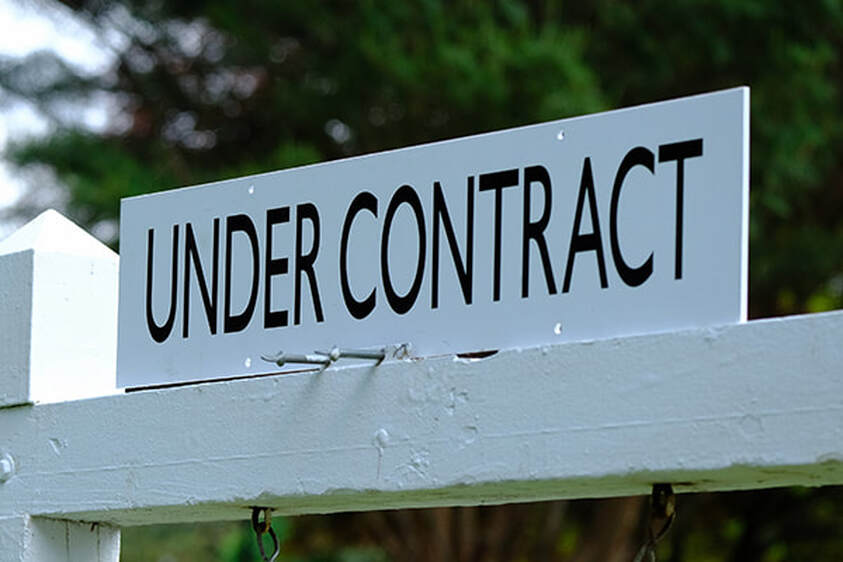|
BY PETE SABINE A bridge loan is a short-term loan that uses the equity from your current home to help you make an offer on a new one, without rushing to sell. A bridge loan is a simple solution to bridge the gap between the home you have and the home you want to buy. A bridge loan can be a viable option if you can cover the cost of the loan along with the additional monthly payments due until your current home sells to pay off the short-term bridge loan. Here are the key benefits of a bridge loan to buy your next home: • Avoid weakening your negotiation position with an offer contingent on the sale of your home. • Take the anxiety of selling your home first without having another home to buy in a competitive real estate market with limited inventory. • Avoid the hassle and expense of a double move. The Bridge Loan Advance Solution The Compass Bridge Loan Advance is available exclusively for our qualified clients with a traditional bridge loan who are working with us to sell their existing primary residence. If you are approved for the Bridge Loan Advance, it has a 0% APR for the life of the loan and has no additional application or loan fees. What rates and fees accompany a bridge loan? The rates and fees for each bridge loan are determined by the lender. We recommend reaching out to a bridge loan lender directly to learn more. The bridge loan can be from any lender of your choice. What is covered by the Bridge Loan Advance? The Compass Bridge Loan Advance can equal up to 6 months of monthly bridge loan payments and eligible closing costs incurred from the bridge loan. Eligible closing costs include the dollar value of any loan fees paid upfront, origination or application fees, if applicable, and appraisal fees. How it works Step #1 - Inquire directly with a bridge loan lender, such as Better.com or Freedom Mortgage, to see financing options and conditions for your loan qualification. Step #2 - Apply to get pre-approved for a bridge loan with the lender of your choice. Step #3 - If approved for a bridge loan, apply with Notable, an independent lender, for the Bridge Loan Advance to cover the first six months of your bridge loan payments. Step #4 - Then use your approved bridge loan to strengthen your offer for your next home. Step #5 - Move into your new home while we market to sell your current home. Pro Tip: Use Compass Concierge home improvement services to sell your home faster and for more money. Step #6 - Use the proceeds from the sale of your former home to pay back the bridge loan and Bridge Loan Advance. Contact us to find out the current value of your home to determine if you have enough equity for a bridge loan. Call or text 925.297.5335. Pete Sabine & Leslie Whitney. Compass #00889760
0 Comments
By Pete Sabine
In a seller’s market, you may have to compete against other buyers, which raises the stakes and makes it especially important that you move through these steps quickly. When you have found a home you love, here is what you need to do to craft an offer that appeals to sellers. Use an escalation clause In a multiple-offer scenario, the last thing you want to do is assume another buyer is paying far above the asking price and submit a higher offer based on this assumption — you might get the property but end up realizing you could have gotten it for less. Consider including an “escalation clause” which states that you are willing to pay a specific dollar amount over the highest competing offer. Here is an example: A home is listed for $850,000 and it has three other offers. You submit an offer of $850,000 with an escalation clause that says you will pay $5,000 more than the highest offer, up to a maximum offer price of $860,000. Then, if another buyer comes in at $855,000, you will automatically offer $860,000 to secure the deal, without going over the maximum amount you are comfortable spending. Accommodate the seller’s timeline Ask if the seller needs a quick close or an option to rent the home after closing to allow enough time to pack and move. For some sellers (like those buying another home or relocating for work), timeline can be as important as the sales price. Waive contingencies Most buyers include contingencies in their offer. In a competitive market, waiving contingencies can make your offer stand out. You can remove the appraisal contingency that is usually included for buyers financing a home purchase as well as the loan contingency only if you are fully pre-approved by your lender. Inspection contingencies are common — and some buyers waive their inspection contingency in hot markets, but this can be risky. The home sale contingency, where your offer is contingent on selling the home you currently own, is included when you need the equity from a home you are selling to purchase your next home. This can make your offer less appealing to a seller, who wants certainty in their plan to fit their own timeline priorities. It is best to complete the sale of your existing home before making offers for your next home. Write a personal letter to the seller Some sellers are sentimental about selling their home and may focus on their desired buyer profile over the highest sales price. When dealing with a seller who has lived in their home for many years with pride of ownership, they might be focused on selling their home to someone who will take good care of it. Write an insightful and sincere letter about why the home is a perfect match and what you love about the house and the community. Let the seller know you are a serious buyer. Over the past 35 years, we have successfully negotiated over 1000 real estate purchase agreements. Call or text 925.297.5335 to benefit from our real estate expertise for your next home purchase. Pete Sabine & Leslie Whitney. Compass. License #01866771  By Pete Sabine After you put your house on the market, you might be hopeful for a quick sale—especially if you've invested a lot of money improving the house and if your neighborhood is in high demand. While you should not panic if the house does not sell right away, you should be concerned after 6 weeks without receiving an offer. Here are some reasons why your house may not be selling. The asking price is too high. If your house is overpriced, it is not going to sell. The longer your property stays on the market, the less likely it will sell at the asking price. Compare your property to similar properties that recently sold within your area to get an accurate idea of its true value. Do not make the mistake of adding 100% of the cost of any renovations you made. The cost of all renovations does not always translate to equivalent added value. Poor presentation. If the listing of your home has a poor description and/or amateur photos, most buyers will not want to visit. Make sure your Realtor creates a listing that attracts the attention of buyers with professional photos and video of the interior and exterior of your home. Houses that smell do not sell. A dirty house leaves a bad impression on buyers. Hire a professional to clean thoroughly the interior including appliances, carpet and windows before showing your house. Lack of emotional appeal. If your home is vacant, do not show an empty house. This makes it difficult for buyers to imagine living in it. Stage your house with furniture and decor to give buyers a sense of space and how it can be used. You want the buyer to feel at home when they tour your home. The décor or remodeling is too personalized. Take down your personal décor so that buyers can have an easier time imagining themselves living there. You might think that dark paint and fixtures in the master bathroom is incredible, but that does not mean potential buyers will agree. If your home improvements or decor are too personalized, most buyers will not get past your unique style and choices for fixtures and finishes. Less is more. If you have too much furniture, it will make the house feel smaller than it is. Too many repairs needed. The more repairs needed, the less likely a buyer will want your house. Many buyers do not want to deal with the cost or effort of doing repair work, even if it is just small repairs, such as tightening a handrail or replacing a broken tile. The market trend changed. Sometimes a hot market can temper by the time your home is offered for sale. Your Realtor should be monitoring the competing home for sale and the supply/demand ratio and communicate with you to make any adjustments in your marketing strategy. You hired a novice Realtor. A seasoned professional Realtor makes all the difference in selling your home at the highest possible price within a reasonable time. All these things can be remedied, however, one of the best ways to avoid making these common mistakes is by hiring an experienced Realtor. We know how to set the stage for your success. Call us to win with us! Pete Sabine & Leslie Whitney. 925.297.5335. Discover more real estate pro tips. Find our podcasts at FiveStarRealEstateTeam.podbean.com. Compass #01866771 |
AuthorPete Sabine Archives
January 2024
Categories |
FIVE STAR REAL ESTATE TEAMRepresenting homeowners & buyers since 1985 with local real estate expertise and over 1000 successful real estate sale transactions, including Buyer Representation, Homeowner Representation, relocation transfers, Investor Representation and professional staging services.
|
COMPANY INFOSan Francisco
East Bay CONNECT WITH PETE
|
OFFICE LOCATION |
QUICK LINKS |
HOME |
ABOUT OUR TEAM |
BUYING |
SELLING |
COMMUNITIES |
TIPS & TOOLS |
CONTACT |
© PETESABINE.COM | PETE SABINE DRE#00889760 | 201 Lafayette Cir #100, Lafayette, CA 94549 | COMPASS DRE #01527235
Site by WPF Creatives
Site by WPF Creatives




 RSS Feed
RSS Feed





